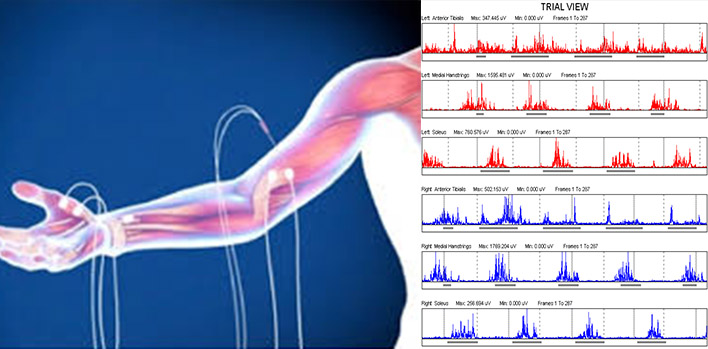What is EMG? When is it done?
Friday, July 28, 2017 | Healthy lifestyle
EMG is the examination of the nerves and muscles in our bodies by electrical methods.
The electrical conduction functions of the nerves are measured using a vigorous linear electric current that will not disturb the patient. For this, a low-intensity electrical current is applied to the skin areas of the fingers and nerves, and the nerve or other part of the skin is collected by computerized instruments. Thus, it can be understood that the nerve is functioning properly.
By inserting small diameter disposable sterile needle-shaped electrodes into the muscles, it is understood whether the examined muscular nerve is diseased or healthy and whether the muscular electrical activity is monitored and analyzed from the EMG screen. Although needle EMG is often applied, only nerve conduction studies may be sufficient in some cases. The EMG examination is a review that takes approximately ½ to 1 hour, with varying degrees.
When is EMG done?
-Nerve injuries (nerve palsy, traffic accidents, etc.)
- Nerve impingement (carpal tunnel syndrome etc.)
- Diagnosis of neck and waist hernias
- Investigation of the effects of nervous disorders (such as diabetes, kidney disease) that can disrupt nerve functions,
- Facial diagnosis and follow-up
- Diagnosis of muscle and nerve-muscle junction diseases (myasthenia, myopathy, etc.)
- Diagnosis of spinal cord diseases (ALS, polio, etc.) leading to muscle fibrils
While coming to examination…
- It is advisable for the patient to come to fullness for examination
- Since the examination is usually made from arms and legs, comfortable, easily removable clothes should be preferred. Women are advised not to wear pantyhose.
- Before the examination, the hands and feet should be clean, cream and similar cosmetic products should not be applied.
- Handpieces and jewelery on the corners (such as rings, bracelets, watches) must be removed before examination as they may affect the work.
- If there are medicines that are used regularly, it is ok to take them. However, patients using blood thinners (aspirin, coumadin) should inform the physician in advance.
- If you are carrying heart pills, it is advisable to warn the physician before examination.












